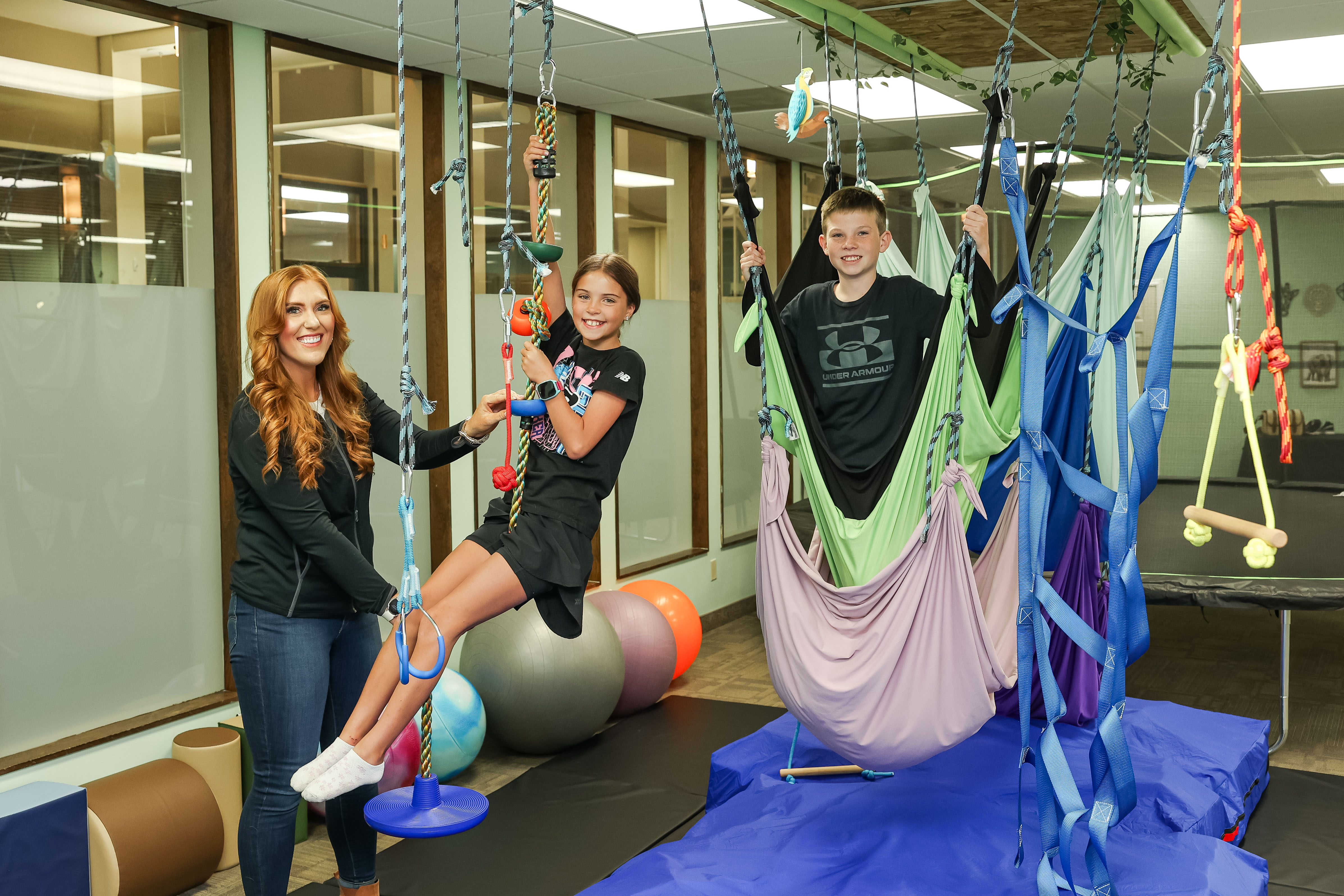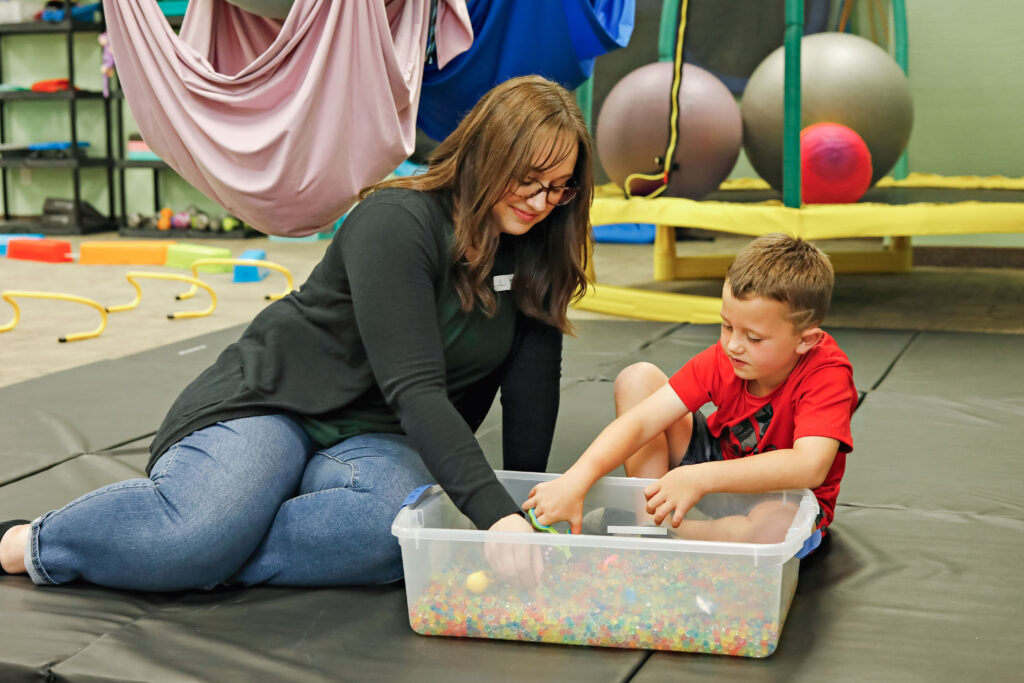
We are so excited to be releasing a blog segment outlining occupational therapy (OT) for each age group. Many of our clients get referred to OT services but are unsure what it is and how it can benefit their child! Our first segment will provide a brief overview of pediatric OT, who may benefit, and where to get started. Stay tuned as well will be releasing a new segment each week starting with OT by age for infants all the way up to THE high school population!
What is Pediatric Occupational Therapy?
Pediatric occupational therapy (OT) is a type of therapy that focuses on helping children develop the skills needed to perform everyday activities (also known as “occupations”) that are important for their growth, independence, and quality of life. These activities can include basic tasks like dressing, eating, playing, schoolwork, and social interactions. The goal is to enable children to function as independently as possible and participate in age-appropriate activities, both at home and in social settings like school and playgrounds.
Key Areas of Focus in Pediatric Occupational Therapy:
- Fine Motor Skills: Developing hand-eye coordination, finger strength, and dexterity for tasks like writing, drawing, cutting, buttoning clothes, or tying shoelaces.
- Gross Motor Skills: Improving coordination, balance, and strength for larger movements such as crawling, running, jumping, or climbing.
- Sensory Processing: Helping children who have sensory processing disorders to respond to sensory stimuli (touch, sound, sight, smell, and taste) in an appropriate way. Some children may be oversensitive or undersensitive to sensory input, and OT can help them regulate these responses.
- Self-Care Skills: Teaching children how to take care of themselves, including dressing, brushing teeth, bathing, feeding, and other daily living skills.
- Cognitive and Executive Functioning: Supporting the development of thinking skills, such as problem-solving, planning, organizing, and time management, which are essential for schoolwork, homework, and independent functioning.
- Social and Emotional Development: Helping children build social skills, emotional regulation, and coping strategies. This is important for interacting with peers, teachers, and family members.
- Play and Leisure Skills: Encouraging children to engage in age-appropriate play and leisure activities, which are vital for learning, socializing, and emotional well-being.
Conditions Treated by Pediatric Occupational Therapy:
Pediatric occupational therapy can help children with a wide range of developmental, physical, emotional, and cognitive conditions, including:
- Autism Spectrum Disorder (ASD)
- Attention-Deficit/Hyperactivity Disorder (ADHD)
- Sensory Processing Disorder (SPD)
- Cerebral Palsy
- Down Syndrome
- Developmental Delays
- Handwriting difficulties (e.g., dysgraphia)
- Coordination disorders (e.g., Dyspraxia)
- Injury recovery (e.g., from fractures or surgery)
- Learning disabilities
- Mental health challenges (e.g., anxiety, depression)
How Pediatric Occupational Therapy Works:
- Assessment: The therapist conducts an evaluation to assess the child’s abilities, challenges, and needs. This may involve observation, parent and teacher input, and specific tests.
- Goal Setting: Based on the assessment, the therapist works with the child and family to set individualized, measurable goals that focus on improving the child’s function in daily activities.
- Intervention: The therapist uses a variety of techniques, including play-based activities, structured exercises, and sensory integration, to address the child’s specific challenges. Therapy may take place in a clinic, school, or home setting.
- Family Involvement: Parents and caregivers are often trained on how to support the child’s therapy goals at home and in the community.
Benefits of Pediatric Occupational Therapy:
- Improves children’s independence in daily tasks
- Enhances academic performance and social interactions
- Boosts self-esteem and confidence
- Promotes emotional regulation and coping skills
- Supports sensory integration and processing
- Encourages physical, cognitive, and motor skill development
Pediatric occupational therapy is designed to help children of all ages and abilities participate more fully in the activities that are important to them, fostering both developmental progress and well-being. If you feel your child would benefit from our Occupational Therapy Services, contact our office at 406-647-0042 or visit our “get started here” page!






No comment yet, add your voice below!